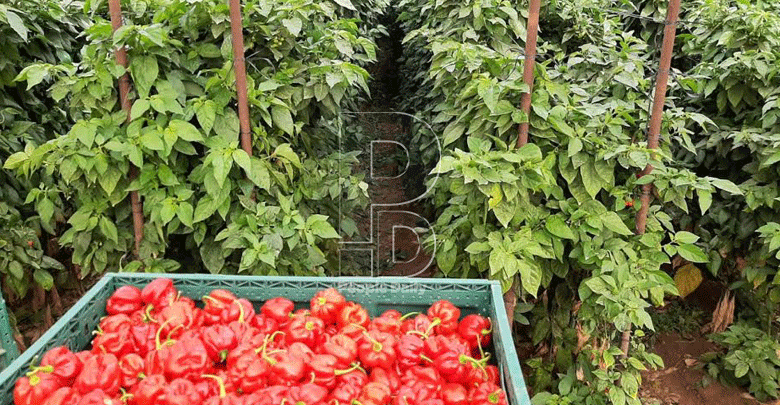How training in Israel is setting up graduate on the road to farming
By Wahinya Henry, March 30, 2021Kevin Ombati is part of the sixth cohort of 22 JKUAT students who left for Israel in 2019 for agricultural training that combines advanced studies and hands-on experience.
Kevin Ombati, an Agriculture and Biosystems Engineering graduate of Jomo Kenyatta University of Agriculture and Technology (JKUAT) in August 2019 joined 98 other Kenyan students for an eleven-month agricultural internship at Arava International Centre for Agricultural Training in Israel.
No sooner had they completed six months months of training than the novel Coronavirus pandemic hit the globe forcing most countries to close their borders.
The Covid-19 scourge being declared an international health emergency by the World Health Organisation indeed brought panic, doom and uncertainty to most, and the group of students was no exception.
But as luck would have it, the group of students drawn from Kenya, Thailand, Laos, Indonesia, Cambodia, Vietnam, Vanuatu, Myanmar, Cape Verde, Nepal, East Timor, Fiji, and The Gambia got the best news imaginable as the world fought the pandemic.
“The programme was to last for 11 months, but luckily for us we got an extension of 11 more months to continue learning and working with the farmers in Israel,” said Ombati during a phone interview.
This news meant that Ombati had more time to undertake frontal studies, agricultural practical work, especially in horticulture, irrigation and livestock as he honed his skills in agriculture.
Lifetime opportunity
Ombati believes, he has interned through the agricultural value chain, from the propagation of seeds to the packaging of the final produce.
He has worked in a pepper farm, watermelon farm, flower farm, dates field, and at the moment, he is attached to a sweet pepper packing House for Green Arava Company.
While acknowledging the expertise of Israel’s agricultural innovation and machinery, Ombati is glad that he can be able to use the knowledge gained in class to improve on agricultural mechanisation.
“Every day I interact with most of the things I learnt in campus. My stay in Israel has enabled me to apply what I learnt and master the use of most farm machinery,” he says.
After the completion of the apprenticeship, Ombati is determined to come back home and set up a model farm to propagate the knowledge gained in the 22 months.
He says he wants to empower farmers on how to manage their farms, brands and market their product in a way that creates economic empowerment.
“I would like to give the knowledge I’ve learnt through training other farmers; not just to grow food, but to ensure they produce quality and enough quantity,” expressed Ombati.
Replicate skills back home
As many new experiences go, it was not a walk in the park settling in Israel. “I experienced language barrier at the start of the programme due to the diversity of the group, but as time went by we found ways to interact and understand each other.
We have learnt to respect, love and make the community we live in our second home,” explains Ombati.
With the stipend they receive during the internship, Ombati has been saving part of it to help him start his model farm back home.
“I am sure most students are saving their stipend, which can be used to initiate, implement or continue an agricultural project in their country in which the knowledge they have gained during the programme will be reflected,” said Ombati.
Known for its prowess in agriculture, Israel is also known for its Christian tourism.
With the extension of the apprenticeship, Ombati was lucky enough to visit most of the Christian sites, his favourite being Bethlehem, particularly the Church of Nativity.
“Israel is known as the birthplace of Jesus, God’s chosen nation and where most of the testimonies told in the bible took place. I am glad I have got to visit most of them.”
Ombati says through the internship, he has learnt to improvise on the “go and use the limited resources you have to implement and execute your idea,” Ombati says, adding, “whatever you put your heart and energy in, can and will be achieved.”
The objective of the internship, which takes place in the Arava region, in the south of Israel, in the desert is to expose individuals like Ombati to the sophisticated agricultural technologies attached to the Arava.
Agriculture in the Arava is the spearhead of modern and sophisticated agriculture in Israel, using modern high technologies in the most unhospitable conditions of the desert.
